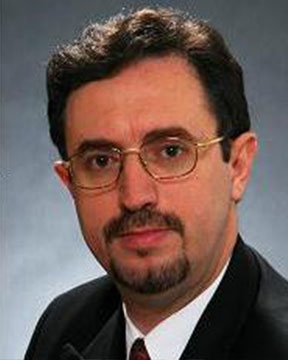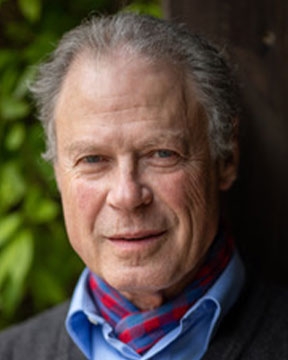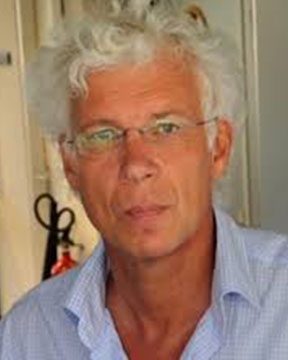This major symposium is in honor of the distinguished work and lifetime achievements of Dr. Martin Kussmann, a very well-known professional with deep impact in biotechnology for nutrition, health and sustainability.
The symposium scope is of utmost relevance for humanity on earth. There is no “planet B” and if there is another place somewhere in the universe where humans could live, it is definitely far away and likely not as beautiful. So, let us take care and make most of what we have.
Humanity in the Anthropocene faces enormous challenges in terms of: the global population of 8 billion today and 10 billion predicted for 2050; the human impact on biodiversity and climate change; and the need for more resilient food, health and energy systems. Yet, humanity also disposes of unprecedented knowledge, technologies, and tools to meet these challenges: the converging and synergistic revolutions in bio- and information technology; and – despite remaining shortcomings and recent imminent threats – the increasing international cooperation in science, economics, and politics.
The two major challenges to be met for preserving a healthy human life on a healthy planet are sustainable generation und use of energy and food. In this Symposium we will compile and discuss scientific and technological contributions to addressing the latter challenge of a healthier and more sustainable food and health system, all enabled by translational systems science.
Nutrition needs to sustain human life, enhance health, and help prevent disease. Nutrition should furthermore prolong human health span in view of extended life span and improve individual well-being. While doing that, it should sustainably use planetary resources and minimize irreparable impact on environment and climate. Nutrition stands at the center of both the necessities and opportunities to deliver better human and planetary health by facilitating: sustainable global food and feed supply for populations; personalized and precision nutrition for enhanced individual health; and unlocking the wealth of natural bioactives.
To meet these seemingly overwhelming and possibly conflicting challenges, nutrition science is advancing towards a translational systems science supporting: a more sustainable food system "from farm to fork"; a more efficient yet affordable health care system; and nutritional and dietary strategies tailored to different ethnicities as well as consumer and patient groups. A sustainable food system requires enhanced leverage of the plant kingdom for macronutrients, in particular the typically animal-derived protein, and for micronutrients and other bioactive compounds. Efficient yet affordable health care should include (general, medical and clinical) nutrition and prevention as a complement to pharmaceutical repair and cure. Tailored nutrition requires translational and comparable clinical studies with deeply phenotyped subjects, representative of population groups.
Just as in biology, where a phenotype emerges from the interaction between genotype and environment, Dr. Kussmann's career has been shaped by a blend of curiosity, opportunity, and the people who inspired and guided him along the way.
Dr. Kussmann's academic journey began in chemistry at the RWTH Aachen (1984-87) and the University of Konstanz, Germany (1987-91), at a time, where chemistry was largely separated from biology. He specialised in biochemistry to cross an early bridge between these two disciplines. In the early 90’s, mass spectrometry appeared to open a wide door into molecular biology, enabling to study proteins like genes – proteomics was born, first as an “extension” of genomics. Thanks to the biology-oriented mindset of his PhD father Prof. Michael Przybylski (mentor #1), he could go through this door and benefit from early developments at the University of Konstanz and the University of California, San Francisco, USA, where he did his PhD.
After completing his PhD, Dr. Kussmann pursued postdoctoral research at the University of Southern Denmark in Odense, where he had the privilege to work with Prof. Peter Roepstorff (mentor #2), a pioneer in mass spectrometry-based proteomics. His inspirational leadership and ability to cultivate a diverse and dynamic research team had a lasting impact on Dr. Kussmann. One of Prof. Roepstorff's guiding principles – “science should always be fun" – resonated deeply with him and has remained a core philosophy throughout his career.
In the early 2000’s, the “heat was on” for large-scale mass spectrometry-based proteomics: the Nobel Prize in Chemistry was awarded in 2002 to John B. Feen and Koichi Tanaka for mass spectrometry of large biomolecules; and proteomics got ready for deployment in commercial research and at industrial scale. Prof. Denis Hochstrasser (mentor #3) from the University of Geneva was founding Europe’s first large-scale proteomics discovery company in 2000. Dr. Kussmann joined this endeavour early on, right on the border to France. They were opulently funded by Bruker Daltonics, Compaq (now Hewlett Packard), and Novartis, and embarked on human plasma proteomics for discovery of cardiovascular disease biomarkers, with 120 staff deploying 50 mass spectrometers,10 robots and a large bioinformatic infrastructure. If they had known in advance how difficult human plasma proteomics actually is, they might not have dared to try it.
In 2003 Dr. Kussmann joined an industrial setting of a different kind: the Nestlé Research Center, an 800 staff R&D unit supporting the largest food company with 350’000-employees. Dr Laurent Fay (mentor #4 and still friend), Head of Bioanalytical Sciences, gave him the opportunity to build and run a group and facility covering genomics, proteomics and bioinformatics – the nutrigenomics era was beginning. Dr. Kussmann was intrigued by the possibility of translating omics into molecular nutrition, thereby fostering a better understanding of nutrient action and clinical nutrition research. Laurent said to him, every PI should write once a book and so they did: “Mass Spectrometry in Nutrition Research”, published by the Royal Society of Chemistry in 2010; with a number of books and chapters following, co-authored and co-edited with several other esteemed colleagues and good friends.
Onwards, Nestlé developed into the leading nutrition, health and wellness corporation, understanding nutrition as preventative medicine thanks to the visionary CEO and later Chairman Peter Brabeck, who Dr. Kussmann had the honour to get to know personally. This strategic shift led into the foundation of the Nestlé Institute of Health Sciences (NIHS) on the campus of the EPF Lausanne, a world’s top 20 university on the shores of Lake Geneva, where he was affiliated as Lecturer. The NIHS pretty much combined the best of both (academic and corporate) worlds, i.e. a large freedom for – yet meant to be translational – science and generous funding. They focused on omics-driven molecular phenotyping of humans in observational and intervention studies to bring personalised nutrition to fruition with diagnostic signatures for predisposition and response. They also introduced translational clinical study designs and data analysis to generate more tangible outcomes for individuals: consumers as well as patients.
This period felt a bit like a corporate-funded professorship with the great privilege to travel the world, presenting at enriching conferences, and meeting the best minds and nicest people working in nutrition and health. This part of his journey was largely inspired by his friend Dr Jim Kaput (mentor #5), founder and CSO of Vydiant Inc., a world-leading personalised health and nutrition biotech. Dr. Kussmann sees Jim as the “father” of ‘Systems Nutrition’, i.e. the understanding that reductionist approaches are limited in nutrition science, as we consume complex diets rather than single molecules, and all this in diverse environments.
As everything has its time, Dr. Kussmann moved on from Nestlé back into academics in 2016 as he was headhunted by the Liggins Institute at the University of Auckland, New Zealand. The Liggins is a world-leading place for early-life health and perinatal nutrition. This concept and ambition of early nutritional prevention to favourably onset a life-health trajectory appealed to him. Besides his full professorship for ‘Systems Biology in Nutrition and Health’ he scientifically directed New Zealand’s National Science Challenge ‘High Value Nutrition’, a food innovation program focused on enhancing New Zealand largest economic sector, i.e. agriculture and nutrition, by scientifically backed high-value natural products.
Life takes turns. He had to return to Europe for private reasons in 2018. A per se enriching and exciting life as a scientific nomad comes at a price, and these bills are not shown on LinkedIn. Returning to the “Old World” from the other side of the globe, with COVID kicking in shortly afterwards, was not easy. It took Dr. Kussmann a few years to fully professionally re-establish himself, after several shorter-term assignments, which nevertheless turned out to be valuable experiences, e.g. in AI-powered discovery of natural bioactives, as CSO of Nuritas Ltd. in Dublin, Ireland. He is grateful for his mentors (#6 and #7) and friends Prof. Pierre Déchelotte at the University of Rouen, France, and Prof. José Ordovas at Tufts University, Boston, USA and iMDEA in Madrid, Spain, who were (like Jim Kaput) always there and supportive, especially in more difficult times.
Eventually, in 2022, he decided to return to Germany to begin another “way of life” as a scientist: the one of an entrepreneur as independent advisor. He founded ‘Kussmann Biotech GmbH’, i.e. his consulting firm, sharing his experience with research-intense food- and biotech’s, corporations, and institutions and support them in their scientific, technological, and business strategy. Pooling your experiences with academy, corporations, start-ups and SMEs plus government, and leveraging your precious international network into being your own boss makes a good late chapter in professional life.
However, referring to the analogy of environment and exposure, he also accepted a new position as Head of Science at the Bavarian Competence Center for Nutrition (KErn), an institute within the Bavarian Research Organisation for Agriculture (LfL), facilitating integrated solutions along the value chain for a healthier and more sustainable food system in Bavaria, Germany, a federal state with 13 M inhabitants. These two current assignments, plus his SAB Chair function for NemaLife Inc., a US-based techbio company specialized in AI- and microfluidics-enabled in vivo screening of bioactives, and a lecturer affiliation at the Technical University of Munich (TUM), further widen his scope of research, management, and teaching with add-ons like food systems and sustainability.
Throughout his career, he has never defined himself by titles or institutions, rather by the environments that inspire forward-thinking science and foster meaningful collaborations. Whether in academia, industry, or entrepreneurial ventures, his motivation has always been to contribute to scientific advances that generate real-world impact.
As we come together for this symposium, he looks forward to meeting you, engaging in thoughtful discussions, exchanging ideas, and collectively working toward a future in which food systems are more sustainable, health outcomes are improved, and scientific knowledge is translated into tangible benefits for society and planet.
Science was the first sector to become truly global because its language and thinking are international. Doing science is a privilege: meeting, knowing and working with smart, nice, open-minded people that do interesting and meaningful things is incredibly enriching and rewarding. There has never been a better time and greater need for science: technology is hardly limiting, and scientists must stand up for both truthfulness and factfulness, more than ever before. We have to enhance the signal over the noise, separate fake from facts and myths from truths. Science is neither an opinion nor an alternative fact. Science is not the truth, but it constantly tries to approach the truth about what exists.
ROUND TABLE DISCUSSIONS
A round table discussion open to everyone interested will be organized during the symposium. This will allow high level representatives of various industries, technologies, and academic disciplines to discuss and debate freely, without reservations, all topics of this symposium and identify possible research and development pathways towards a future industry with increased sustainability. Click here for a description of the topics of symposium and the round table.
You are cordially invited to actively participate in this symposium by submitting and presenting a paper, or by attending the round table. We look forward to meeting you at this world class symposium.
Click here to see the detailed scope and topics.To download Flyer, click on the icon:

 Click here to submit an abstract and choose International Symposium on Biotechnology for Nutrition, Health and Sustainability in the list: https://www.flogen.org/sips2025/abstract_submission.php?p=35#content_topClick here to see the General Author Invitation: https://www.flogen.org/sips2025/invitations/Biotechnology_General_Author_Invitation.htmlClick here to see the Social Media Text: https://www.flogen.org/sips2025/socialmediatext/Biotechnology_Social_Media_Text.htmlClick here to see other resources for this symposium: https://www.flogen.org/sips2025/symresources.php?sym=80Click here to view the list of abstracts for this symposium: https://www.flogen.org/sips2025/technical_program.php?a=f033ab37c30201f73f142449d037028d
Click here to submit an abstract and choose International Symposium on Biotechnology for Nutrition, Health and Sustainability in the list: https://www.flogen.org/sips2025/abstract_submission.php?p=35#content_topClick here to see the General Author Invitation: https://www.flogen.org/sips2025/invitations/Biotechnology_General_Author_Invitation.htmlClick here to see the Social Media Text: https://www.flogen.org/sips2025/socialmediatext/Biotechnology_Social_Media_Text.htmlClick here to see other resources for this symposium: https://www.flogen.org/sips2025/symresources.php?sym=80Click here to view the list of abstracts for this symposium: https://www.flogen.org/sips2025/technical_program.php?a=f033ab37c30201f73f142449d037028d





